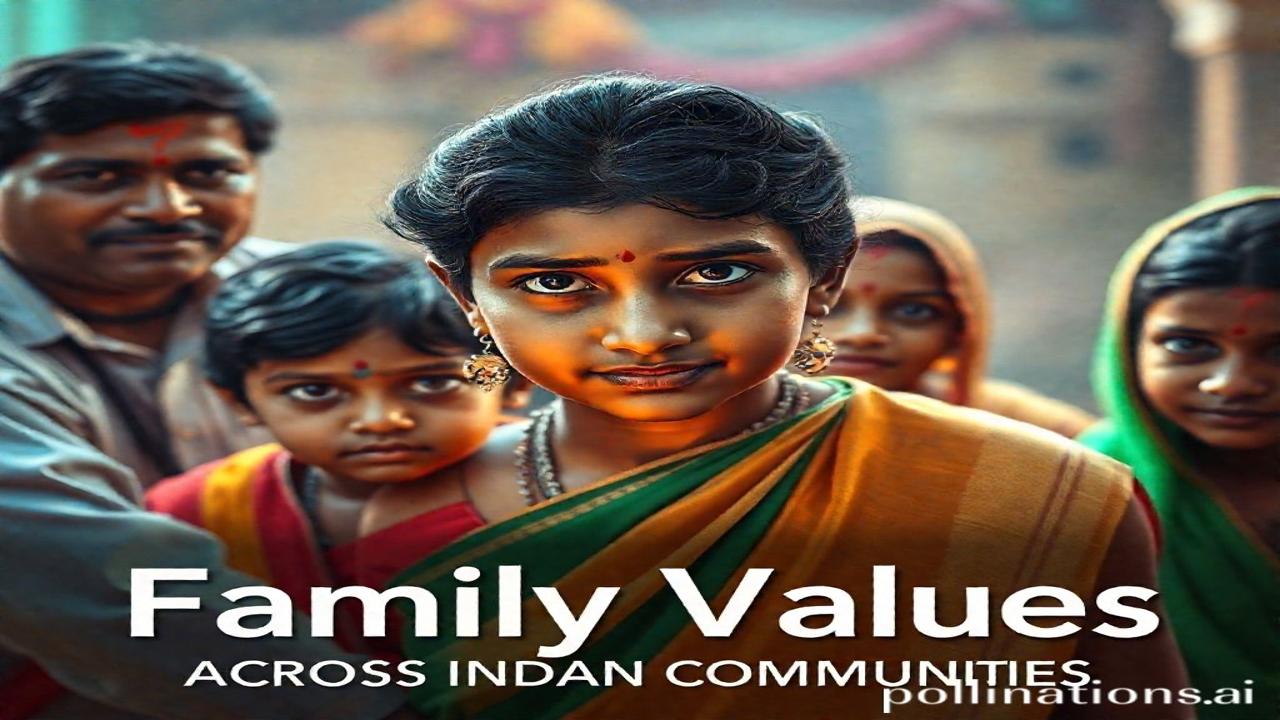Waqt Ki Deewaron Par Likhi Pariwaar Ki Kahani: Family Values Across Indian Communities
Kabhi socha hai, dadi maa ki woh kahaniyon mein, woh ghar ki deewaron par lage photo frames mein, aur woh subah ki chai ki chuskiyon mein kya chhupa hota hai? Waqt ki dhool mein, hum sab ek aisi kahani ke hisse hain jise ‘pariwaar’ kehte hain. Ye sirf khoon ka rishta nahi hai, ye hai sanskriti ka, sanskar ka, aur ek saath hansne aur rone ka. Aaj, hum isi ‘pariwaar’ ke rangon ko, India ke alag-alag communities mein, unke values ko explore karenge. Let’s dive in!
Bharat Ki Sanskriti: Pariwaar Ka Kya Matlab Hai? (Historical & Cultural Context)
India, yaani Bharat, sirf ek desh nahi hai, yeh toh dher saari cultures ka mel hai. Yahan har state, har community ka apna ek unique way hai zindagi jeene ka, aur yeh sabse zyada dikhta hai unke family values mein. Hum ‘family values’ ki baat karte hain toh kya matlab hai? Essentially, yeh woh beliefs aur principles hain jo ek generation se doosre generation mein pass hote hain, shaping how we interact with each other, solve problems, and live our lives.
From the joint families of North India to the matrilineal systems of the Khasi tribe in Meghalaya, pariwaar ka structure aur values change hote rehte hain. Vedic kaal se lekar aaj tak, pariwaar ka importance bana raha hai. Imagine, Raja Dasharatha ka pariwaar, jahan Ram ji ne apne pita ki aagya ka palan kiya. Ya, Mughal samrajya mein, jahan shehzadiyan bhi political decisions mein important role play karti thi. Pariwaar, hamesha se, Shakti ka kendra raha hai.
Zamini Sach – Log Aur Jeevan (Deep Dive with Human Element)
Sochiye, ek Gujarati pariwaar mein, jahan har tyohaar dhoom-dhaam se manaya jata hai. Thepla aur dhokla bante hain, aur sab milkar Garba khelte hain. “Beta, business mein loss ho gaya toh kya hua, hum hain na saath dene ke liye,” dada ji ka yeh kehna hi toh pariwaar ka asli matlab hai.
Phir chaliye, south India mein, ek Tamil Brahmin pariwaar mein. Yahan, har subah mantra ka ucharan hota hai, aur pooja path ke baad, sab milkar filter coffee peete hain. “Amma, aapki rasam recipes ke bina Diwali adhuri hai,” beta maa ko yaad dilata hai.
Aur phir, dekhiye ek Punjabi pariwaar ko. Yahan, loud music, laughter, aur generous heart se zindagi jeete hain. “Balle balle! Putar, jeetkar aao, hum toh tumhare saath hain,” pita apne bete ko aashirwad dete hain.
These aren’t just stories; they are reflections of how different communities prioritize different aspects of family life. Kahin importance ‘sewa’ aur ‘tyaag’ ka hai, toh kahin ‘samaan’ aur ‘bhaichara’ ka.
Dharohar Aur Pehchan (Cultural Significance Today)
Aaj bhi, in sabhi values ka impact humari zindagi par dikhta hai. Humare rituals, humare festivals, humari bhasha – sab mein pariwaar ki chhaap hai. Dekho, Diwali mein kaise sab ghar aate hain, duriyan mit jaati hain. Ya, Holi mein kaise sab rangon mein milkar ek ho jaate hain. Yeh sab ‘Bharatiyata’ ka hissa hain, a collective identity that is built on these shared values.
Aaj kal, nuclear families badh rahi hain, lekin phir bhi, pariwaar ka concept utna hi important hai. Log chahe videsh mein basein, lekin apne roots ko nahi bhoolte. They strive to maintain the traditions and values they grew up with. Technology ne bhi help ki hai – video calls, social media, and online family groups keep everyone connected.
Mazedar Tathya Ya Bhram-Bhanjak (Fun Fact or Myth-Buster)
Log samajhte hain ki India mein sirf joint families hote hain. Lekin asli sach yeh hai ki nuclear families bhi badh rahi hain, specially urban areas mein. However, even in nuclear families, the influence of extended family and their values remains significant. Another misconception is that arranged marriages are forced. While forced marriages still exist, most arranged marriages are consensual, with the partners and their families having a say.
Drishya Aur Bhavnaen (Visual & Sensory Layer)
Imagine the smell of spices wafting from the kitchen during Diwali. Picture the vibrant colors of the sarees during a wedding ceremony. Hear the sound of laughter during a family gathering. Feel the warmth of your grandmother’s hug. These sensory experiences are intertwined with our family values, making them even more memorable and significant.
Antim Vichar Ya Uddharan (Closing Insight or Quote)
“Vasudhaiva Kutumbakam” – The world is one family. This ancient Sanskrit phrase encapsulates the essence of Indian family values. Pariwaar sirf ek unit nahi hai; yeh toh woh foundation hai jispar humara samaj bana hai. Let’s celebrate and cherish these diverse values, ensuring that the story of ‘pariwaar’ continues to be told with love and respect for generations to come.
